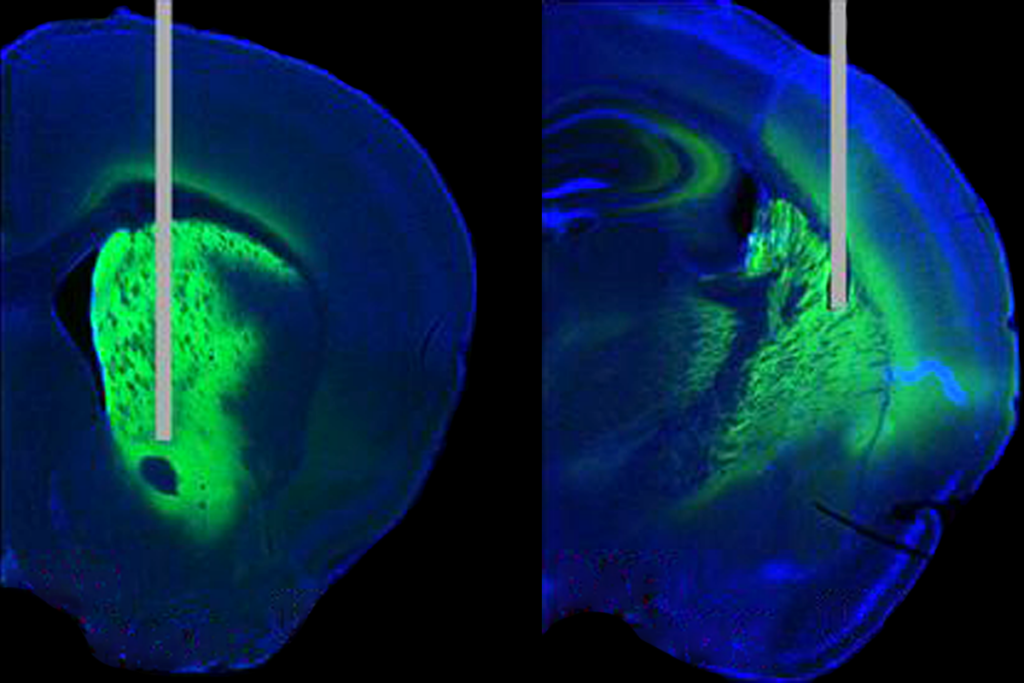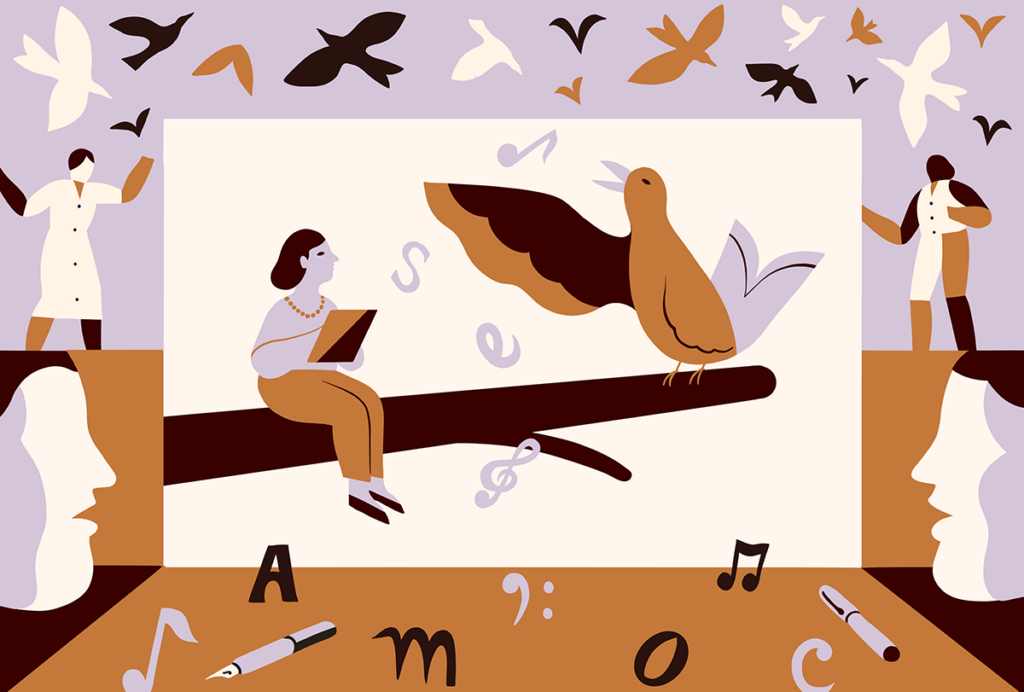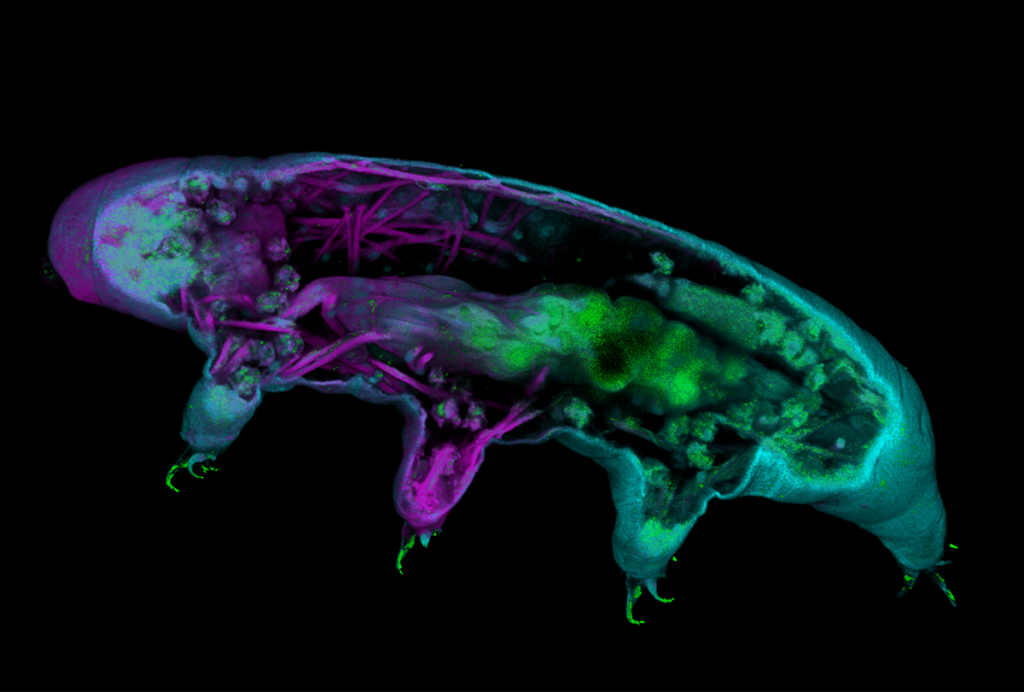Systems neuroscience
Recent articles
‘Natural Neuroscience: Toward a Systems Neuroscience of Natural Behaviors,’ an excerpt
In his new book, published today, Nachum Ulanovsky calls on the field to embrace naturalistic conditions and move away from overcontrolled experiments.

‘Natural Neuroscience: Toward a Systems Neuroscience of Natural Behaviors,’ an excerpt
In his new book, published today, Nachum Ulanovsky calls on the field to embrace naturalistic conditions and move away from overcontrolled experiments.
Bespoke photometry system captures variety of dopamine signals in mice
The tool tracks the excitation of an engineered protein that senses dopamine’s absolute levels, including fast and slow fluctuations in real time, and offers new insights into how the signals change across the brain.

Bespoke photometry system captures variety of dopamine signals in mice
The tool tracks the excitation of an engineered protein that senses dopamine’s absolute levels, including fast and slow fluctuations in real time, and offers new insights into how the signals change across the brain.
This paper changed my life: Stephanie Palmer on the ties between human speech and birdsong—and her ‘informal life coach’
A groundbreaking review by Allison Doupe, who was Palmer’s mentor, and Patricia Kuhl helped shape the field’s understanding of the neural and evolutionary dynamics of speech.

This paper changed my life: Stephanie Palmer on the ties between human speech and birdsong—and her ‘informal life coach’
A groundbreaking review by Allison Doupe, who was Palmer’s mentor, and Patricia Kuhl helped shape the field’s understanding of the neural and evolutionary dynamics of speech.
How tiny tardigrades could help tackle systems neuroscience questions
The eight-legged, millimeter-long animals reveal how small nervous systems produce complex behaviors and perceptual abilities, a preprint suggests.

How tiny tardigrades could help tackle systems neuroscience questions
The eight-legged, millimeter-long animals reveal how small nervous systems produce complex behaviors and perceptual abilities, a preprint suggests.
The limits of neuroscience
Truly understanding the brain requires a set of conditions we’re unlikely to meet: that knowledge about the brain is finite, and that we have both access to that knowledge and the means to understand it.

The limits of neuroscience
Truly understanding the brain requires a set of conditions we’re unlikely to meet: that knowledge about the brain is finite, and that we have both access to that knowledge and the means to understand it.
Explore more from The Transmitter
Smell studies often use unnaturally high odor concentrations, analysis reveals
It’s time to fashion olfactory neuroscience stimuli based on odor concentrations in the wild, say study investigators Elizabeth Hong and Matt Wachowiak.

Smell studies often use unnaturally high odor concentrations, analysis reveals
It’s time to fashion olfactory neuroscience stimuli based on odor concentrations in the wild, say study investigators Elizabeth Hong and Matt Wachowiak.
Developmental delay patterns differ with diagnosis; and more
Here is a roundup of autism-related news and research spotted around the web for the week of 14 April.

Developmental delay patterns differ with diagnosis; and more
Here is a roundup of autism-related news and research spotted around the web for the week of 14 April.
Functional MRI can do more than you think
Recent technological advances provide a range of new and different information about brain physiology. But taking full advantage of these gains depends on collaboration between engineers and neuroscientists.

Functional MRI can do more than you think
Recent technological advances provide a range of new and different information about brain physiology. But taking full advantage of these gains depends on collaboration between engineers and neuroscientists.